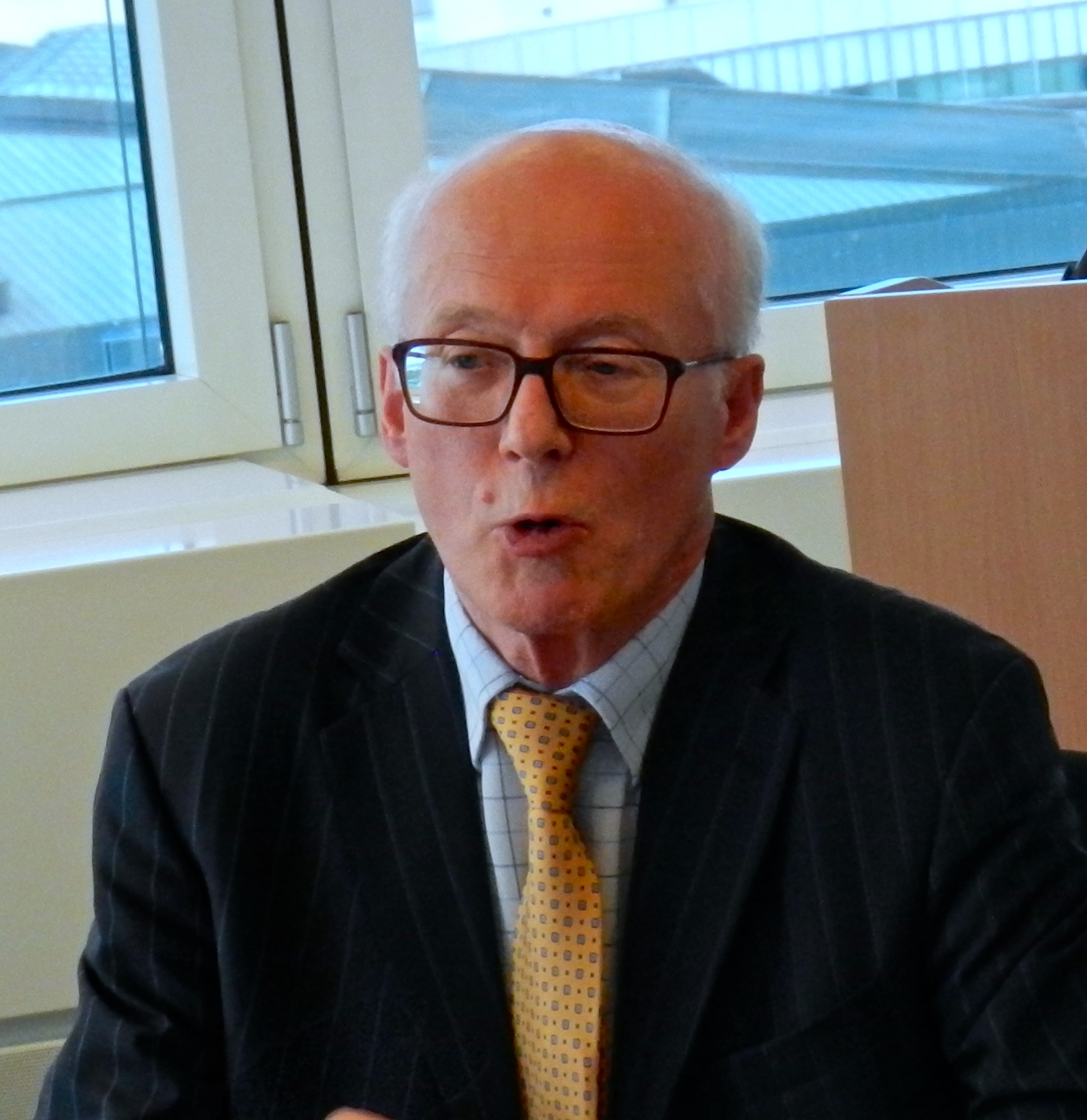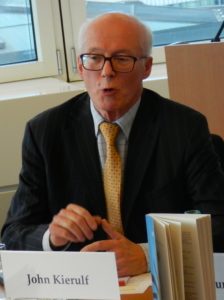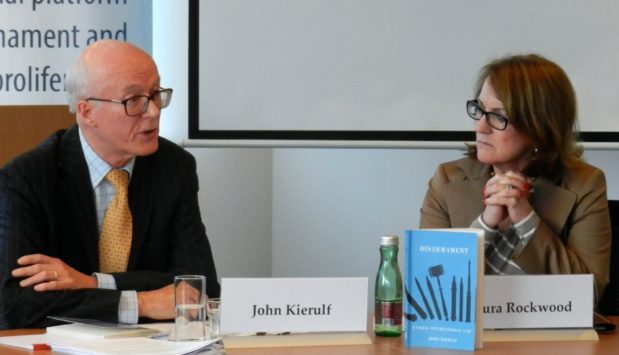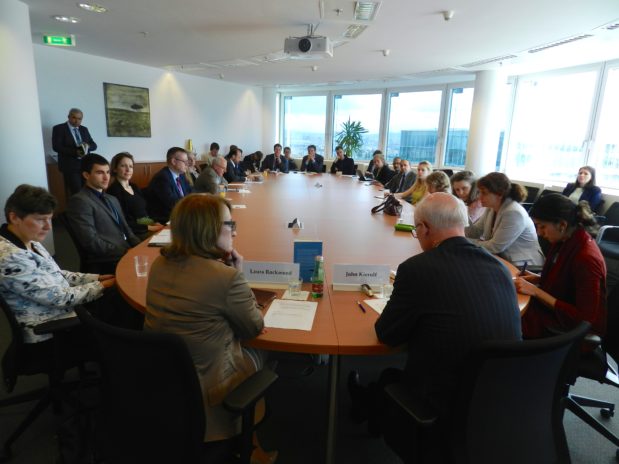

On 8 May 2017, the VCDNP hosted a seminar by John Kierulf, retired diplomat and former disarmament negotiator with Denmark’s Ministry of Foreign Affairs, to discuss the findings of his recent book entitled “Disarmament under International Law,” which is an updated English version of the original Danish edition published in 2014. The book contains a comprehensive review of the most important treaties, conventions and other international instruments on disarmament, arms control and non-proliferation of both conventional weapons and weapons of mass destruction (WMD).
The primary objective of the book, as explained by the author, is to provide an introduction to international law, specifically related to disarmament, and argue for stronger political action in order to strengthen arms control and disarmament efforts through legally binding conventions and treaties. While providing insight into the contents of the book, Kierulf explained that the book, which is divided into three parts, provides definitions; background and historical developments of arms control agreements since the Hague conventions of 1899 and 1907; details about the existing agreements both for conventional weapons and WMDs; and recommendations for further developments in international law on disarmament, arms control and non-proliferation.
Kierulf examined how disarmament, arms control, and non-proliferation of both conventional weapons and weapons of mass destruction are regulated in existing treaties and conventions. In the WMD category, the book not only covers legal issues concerning nuclear, biological and chemical weapons, but also other categories including radiological weapons, cyber space, and WMD in outer space. It also contains a detailed examination of conventional arms including heavy and light conventional weapons. There is a special section covering anti-personnel land mines under the Ottawa convention. Other topics of discussion in the book include cluster bombs, the Arms Trade Treaty and global military expenditures.

The author put forward various recommendations to reduce nuclear risks that included removing nuclear weapons from high operational readiness status and keeping warheads separate from the delivery means. He emphasized the need to remove all tactical weapons from other territories. In commenting on the need to stop the modernization plans of the nuclear weapon states, Kierulf argued that these plans are a direct violation of Article VI of the Treaty on the Non-Proliferation of Nuclear Weapons. He observed that while there is a low probability of a nuclear exchange between the US and Russia, there is an increasing risk of radiological and/or nuclear terrorism. One important and necessary step to minimize such risks, he argued, is to create awareness and impart education to the public and younger generation about the dangers of nuclear weapons. Kierulf presented information and analysis on a comprehensive range of issues related to the current state of international security. Underlining the continued and serious threat posed by nuclear weapons, Kierulf appealed for increased and effective international efforts to reduce their numbers and ultimately eliminate them.
The seminar was followed by an interactive debate in which a well-informed audience engaged with the author and shared their perspectives. It was observed that international law has not kept pace with new technological developments, and national strategies, especially of nuclear armed States, have not been consistent with international law. A lively discussion took place highlighting the fact that varying interpretations of international law exist, and emphasizing the need for continued dialogue on this subject. The author was appreciated for his valuable contribution to the field of international law and disarmament, with many participants suggesting that his book serve as a text book for students and researchers working in the field.
